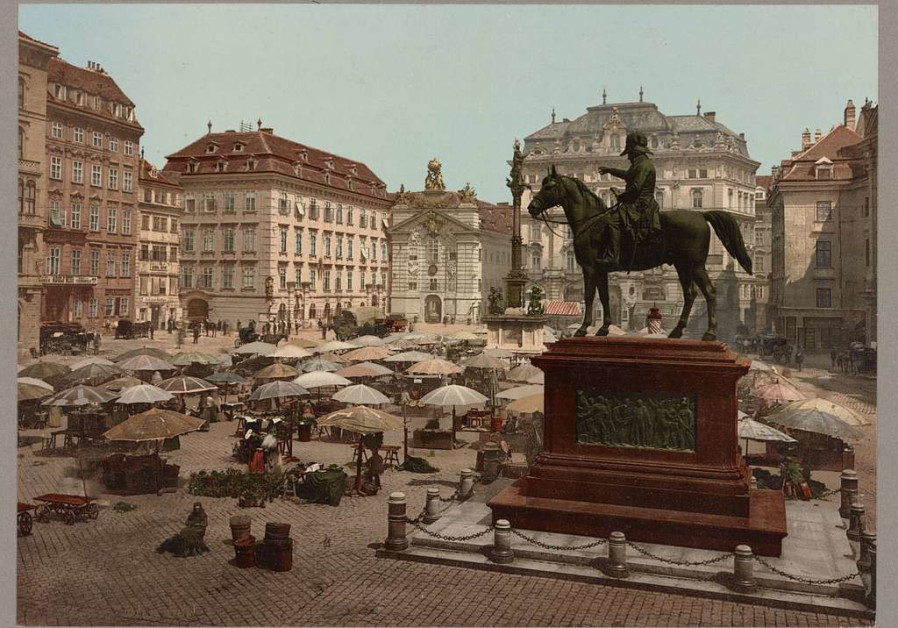In the 1850s, the Austro-Hungarian empire was like a goose trying to maintain some order among a horde of unruly goslings.
The country encompassed nearly a dozen various ethnic groups that had their own ambitions, loyalties and allegiances. Each group had its distinct level of loyalty to the government in Vienna.
The area that today comprises the Czech Republic was not much different. At one time the Czechs controlled an impressive piece of Europe with Prague as its capital. But in the struggle between the Roman Catholic Church, as represented by Austria, and the Protestant firebrands under the Czech flag, the Czechs lost and for three centuries thereafter were obliged to live under Austrian rule.
To encourage the Jews in our family’s hometown, Boskovice, to vote as a German ethnic group, Vienna went to some lengths to maintain friendly relations with the Jews of the city. The Austrian government designated the local count to be the schutzherr (protector) of the Jewish ghetto. For this service the Jewish community contributed to the count’s treasury and the count, in turn, took interest in the affairs of the Jewish families under his benign protection. In the 1800s, for example, the reigning Count Mansdorff donated a new administration building to the Jewish community and paid for the construction of the ghetto’s new main well. Later, an equally generous count donated an area of land adjacent to the ghetto where a small grammar school could be built and where festivals and athletic activities could be conducted.
A familiar anecdote that was popular in the ghetto told of the occasion when the count was discussing Jewish affairs with the dayan. The question came up: “What is a dayan?”
The dayan, the Jewish elder explained to the count, is like an assistant rabbi who deals with matters that should not take up the rabbi’s valuable time. For example, a dayan may be called upon to decide whether a certain goose, duck or chicken is kosher and can be cooked and eaten by Jews. If, as a result of a careful inspection the bird is declared not kosher, it cannot be eaten by Jews and must be discarded.
“Well, in the future,” the count very generously offered, “just bring such an un-kosher fowl to my gamekeeper, and I would be happy to replace it with a matching bird from my farm.”
The dayan gratefully accepted this generous offer and went on to explain that a dayan might also be concerned with the mikveh where the dayan must decide when a woman may engage in intercourse after having menstruated.
“Well,” the count is reputed to have said, “I am perfectly happy to help and replace a duck, a goose or a chicken, but when it comes to the countess, I am sorry, there I must draw a line.”

For me that meant to be a loyal and ardent supporter of all things Czech. I was a great fan of all the sports teams that represented Czechoslovakia in international sports – soccer, ice hockey, tennis, skiing and athletics. I also joined in the cheering when King Carol of Romania visited Brno because Romania, Yugoslavia and Czechoslovakia created the Little Entente, a security pact to come to each other’s defense if attacked. We also supported France and England because they expressed interest in our country. Of course, when the German tiger growled they all turned tail and abandoned us.
After World War II ended in 1945, our father made an effort to seek restitution of some of the family’s possessions seized by the Nazis. After six years of turmoil and war there was little to recover of the valuables like paintings, furnishings and jewelry. The Germans had raided all our bank accounts and traded away all our investments. The only thing they could not take with them was the real estate – the houses, the factory and lands that my father owned before the war.
When the Communists seized power in Czechoslovakia in 1948, all efforts to recover the properties to the rightful owners stopped. The Communist Czech authorities had no inclination to negotiate with anyone. For 41 years, the miserable Communist regime held the country in a tight grip, until 1989 when, in the so-called Velvet Revolution, the Communists were ousted and were replaced by a democratic administration. By that time, my father and my brother Steven had died. Steven became a very good and successful lawyer and had led the efforts to recover our property. With his passing, the recovery of the properties fell into my inexperienced lap.
After the revolution, the Czech government was, at least, willing to listen to claims. They allowed the building on Janska Street in Brno that was jointly owned by us and cousin Karl’s family to be returned to us, and I also received the possession of our house on Dolni Street 5. However, they flatly refused to discuss the Brothers Ticho factory in Boskovice. It was seized by the Communists and was now operated by government-assigned owners. The house at U Templu #10 that the Fuchs family owned, where my grandfather was born, which became the property of uncle Jacob and that I had rebuilt and restored to keep it from collapsing, was sold by the city to new owners and recovery was rejected. There was another large apartment house on Minoritska Street that was owned by several Ticho uncles that was not returned to me, despite the fact that I was declared the rightful owner.
So, while our side won the war, we sustained substantial losses. Who was it who said “War is hell?” Whoever it was, was certainly right.
